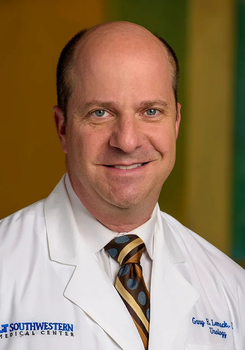Neurogenic Bladder Overview
Learn About Neurogenic Bladder
Neurogenic bladder is a problem in which a person lacks bladder control due to a brain, spinal cord, or nerve condition.
Neurogenic detrusor overactivity; NDO; Neurogenic bladder sphincter dysfunction; NBSD
Several muscles and nerves must work together for the bladder to hold urine until you are ready to empty it. Nerve messages go back and forth between the brain and the muscles that control bladder emptying. If these nerves are damaged by illness or injury, the muscles may not be able to tighten or relax at the right time.
Disorders of the central nervous system commonly cause neurogenic bladder. These can include:
- Alzheimer disease
- Birth defects of the spinal cord, such as spina bifida
- Brain or spinal cord tumors
- Cerebral palsy
- Encephalitis
- Learning disabilities such as attention deficit hyperactivity disorder (ADHD)
- Multiple sclerosis (MS)
- Parkinson disease
- Spinal cord injury
- Stroke
Damage or disorders of the nerves that supply the bladder can also cause this condition. These can include:
- Nerve damage (neuropathy)
- Nerve damage due to long-term, heavy alcohol use
- Nerve damage due to long-term diabetes
- Nerve damage due to vitamin B12 deficiency
- Nerve damage from syphilis
- Nerve damage due to pelvic surgery
- Nerve damage from a herniated disk or spinal canal stenosis
The symptoms depend on the cause. They often include symptoms of urinary incontinence.
Symptoms of overactive bladder may include:
- Having to urinate too often but in small amounts
- Problems emptying all the urine from the bladder
- Loss of bladder control
Symptoms of underactive bladder may include:
- Full bladder and possibly urine leakage
- Inability to tell when the bladder is full
- Problems starting to urinate or emptying all the urine from the bladder (urinary retention)
Medicines may help manage your symptoms. Your health care provider may suggest:
- Medicines that relax the bladder (for example, oxybutynin or tolterodine)
- Medicines that make certain nerves more active (bethanechol)
- Botulinum toxin
- GABA supplements
- Antiepileptic medicines
Your provider may refer you to someone who has been trained to help people manage bladder problems.
Skills or techniques you may learn include:
- Exercises to strengthen your pelvic floor muscles (Kegel exercises)
- Keeping a diary of when you urinate, the amount you urinated, and if you leaked urine. This may help you learn when you should empty your bladder and when it may be best to be near a bathroom.
Learn to recognize the symptoms of urinary tract infections (UTIs), such as burning when you urinate, fever, low back pain on one side, and a more frequent need to urinate. Cranberry tablets may help prevent UTIs.
Some people may need to use a urinary catheter. This is a thin tube that is inserted into your bladder. You may need a catheter to be:
- In place all the time (indwelling catheter).
- In your bladder 4 to 6 times a day to keep your bladder from becoming too full (intermittent catheterization).
Sometimes surgery is needed. Surgeries for neurogenic bladder include:
- Artificial sphincter
- Electrical device implanted near the bladder nerves to stimulate the bladder muscles
- Sling surgery
- Creation of an opening (stoma) in which urine flows into a special pouch (this is called urinary diversion)
Electrical stimulation of the tibial nerve in the leg may be recommended. This involves placing a needle into the tibial nerve. The needle is connected to an electrical device that sends signals to the tibial nerve. The signals then travel up to the nerves in the lower spine, which control the bladder.
University Medical Associates Of The Medical University Of South Carol
Eric Rovner is a Urologist in Charleston, South Carolina. Dr. Rovner is rated as an Elite provider by MediFind in the treatment of Neurogenic Bladder. His top areas of expertise are Urinary Incontinence, Stress Urinary Incontinence, Frequent or Urgent Urination, Reconstructive Urology Surgery, and Bladder Reconstruction. Dr. Rovner is currently accepting new patients.
UT Southwestern - Urology
Gary Lemack is a Urologist in Dallas, Texas. Dr. Lemack is rated as an Elite provider by MediFind in the treatment of Neurogenic Bladder. His top areas of expertise are Neurogenic Bladder, Urinary Incontinence, Stress Urinary Incontinence, Reconstructive Urology Surgery, and Cystectomy.
Atrium Health Women's Care Urogynecology & Pelvic Surgery
Michael Kennelly is an Obstetrics and Gynecologist in Charlotte, North Carolina. Dr. Kennelly has been practicing medicine for over 37 years and is rated as an Elite provider by MediFind in the treatment of Neurogenic Bladder. His top areas of expertise are Urinary Incontinence, Neurogenic Bladder, Frequent or Urgent Urination, Sacral Nerve Stimulation, and Ureteroscopy. Dr. Kennelly is currently accepting new patients.
If you are having urinary incontinence, organizations are available for further information and support.
Complications of neurogenic bladder may include:
- Urine leakage that can cause skin to break down and lead to pressure sores
- Kidney damage if the bladder becomes too full, causing pressure to build up in the tubes leading to the kidneys and in the kidneys themselves
- Urinary tract infections
Contact your provider if you:
- Are unable to empty your bladder at all
- Have signs of a bladder infection (fever, burning when you urinate, frequent urination)
- Urinate small amounts, frequently
Summary: The purpose of this research study is to determine the effectiveness of a treatment called transcutaneous tibial nerve stimulation or TTNS in the treatment of urinary leakage for patients with spina bifida. This treatment involves electrical stimulation of a nerve by the ankle. Participants will complete urodynamic testing and questionnaires prior to the treatments. Participants will then complete...
Summary: The goal of this observational qualitative study is to learn about the experiences and perspectives of patients with neurogenic lower urinary tract dysfunction (NLUTD) and their caregivers regarding different types of intravesical instillations used for urinary health. The study aims to understand the perceived benefits, challenges, and opportunities related to Lactobacillus-only, gentamicin-only,...
Published Date: June 13, 2024
Published By: Joseph V. Campellone, MD, Department of Neurology, Cooper Medical School at Rowan University, Camden, NJ. Review provided by VeriMed Healthcare Network. Also reviewed by David C. Dugdale, MD, Medical Director, Brenda Conaway, Editorial Director, and the A.D.A.M. Editorial team.
Chapple CR, Osman NI. The underactive detrusor. In: Partin AW, Dmochowski RR, Kavoussi LR, Peters CA, eds. Campbell-Walsh-Wein Urology. 12th ed. Philadelphia, PA: Elsevier; 2021:chap 118.
Goetz LL, Klausner AP. Neurogenic lower urinary tract dysfunction. In: Cifu DX, ed. Braddom's Physical Medicine & Rehabilitation. 6th ed. Philadelphia, PA: Elsevier; 2021:chap 20.
Panicker JN, DasGupta R, Batla A. Neurourology. In: Jankovic J, Maziotta JC, Pomeroy SL, Newman NJ, eds. Bradley and Daroff's Neurology in Clinical Practice. 8th ed. Philadelphia, PA: Elsevier; 2022:chap 45.

